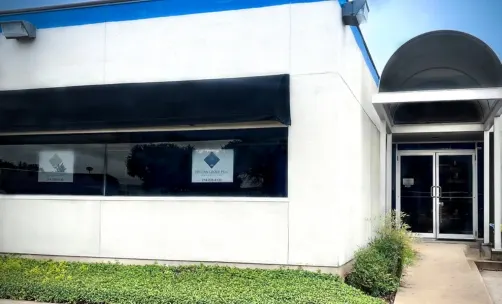A green card lawyer can help you apply to become a lawful permanent resident whether your eligibility comes through a family member, an employment opportunity, or other avenues.
Google Review – Abhishek C.

Don't risk your future by navigating immigration complexities and processes alone. Trust an immigration attorney for guidance.
A green card is an official document proving you’re an LPR of the United States. Foreign nationals may be eligible to apply for a green card through:
In this comprehensive guide, we’ll discuss each pathway.
Some of the pathways to a green card involve first being granted an immigrant visa while others utilize programs that allow a foreign national to apply for a green card without needing to apply for an immigrant visa. Once you are eligible to register as an LPR, your green card attorney will help you apply for your actual green card using:
Your green card lawyer at Din Law Group will provide you with expert guidance for your individual circumstances.
Your green card attorney at Din Law Group will explain that family-based green cards start with an immigrant visa petition. Existing green card holders and U.S. citizens can petition U.S. Citizenship and Immigration Services (USCIS) for immigrant visas on behalf of their foreign family members using immigrant visa petitions.
When an LPR or U.S. citizen petitions for an immigrant visa on behalf of their family member, green card lawyers call them, “the visa sponsor.”

Green card lawyers call the family member whose immigrant visa is being requested, “the visa beneficiary.”
To petition USCIS for a family-based immigrant visa, the sponsor’s green card attorney will file Form I-130, Petition for an Alien Relative.
NOTE: An approved family-based immigrant visa allows the beneficiary to apply for a green card using either Consular Processing or Adjustment of Status.
Your green card attorney will explain that if you are a U.S. citizen, you have a greater advantage when it comes to sponsorship. U.S. citizens can sponsor certain immediate family members without the restrictions of a congressional cap on the number of annual visas available. Plus, there are more sponsorship opportunities available to U.S. citizens.
U.S. citizens can sponsor both Immediate Relative (IR) visas and Family Preference visas.
Immediate Relative Immigrant Visas
If you are a U.S. citizen, your green card lawyer can help you petition for the immigrant visas of your:
Family Preference Immigrant Visas
If you are a U.S. citizen you can also sponsor other family members, though Congress does cap the number of visas it grants each year in these Family Preference visa categories. If you are a citizen, Family Preference visas may be available to your:
Your green card attorney will explain that green card holders can sponsor some of their family members too. If you are a green card holder, you can sponsor Family Preference visas for your:
Your green card attorney at Din Law Group also has extensive experience with employment-based visas. Your green card attorney will explain that many people become eligible for green cards by obtaining an employment-based immigrant visa. Also, while most employment-based immigrant visas require the sponsorship of a U.S. employer, some allow for self-petitioning.
To petition USCIS for an employment-based immigrant visa, the petitioner’s green card attorney must file the proper immigrant visa petition. Usually, the petition that is used is Form I-140, Immigrant Petition for Alien Workers.

Note: An approved employment-based immigrant visa allows a foreign national to apply for a green card using either Consular Processing or Adjustment of Status.
There are five preference categories for employment-based immigrant visas.
EB-1 immigrant visas are First Preference Employment-Based visas. If you qualify for an EB-1 visa, your green card attorney will explain that you can sponsor your own visa petition. This is a very elite visa category reserved for people with extraordinary abilities.
EB-2 immigrant visas are Second Preference Employment-Based visas. EB-2 immigrant visas are for professionals who require advanced degrees or have an exceptional ability in business, the arts, or the sciences. EB-2 immigrant visas typically need a U.S. employer’s sponsorship, though self-petitioning is available with a National Interest Waiver.
EB-3 immigrant visas are Third Preference Employment-Based visas. EB-3 visas are for skilled workers, professionals, and unskilled labor. These visas require a U.S. employer’s sponsorship.
EB-4 immigrant visas are Fourth Preference Employment-Based visas. These visas are reserved for special immigrant workers. Unlike other categories of employment-based visas, green card lawyers typically use Form I-360, Petition for Amerasian, Widow(er), or Special Immigrant to petition for this visa.
EB-5 immigrant visas are Fifth Preference Employment-Based visas. A green card attorney may be able to file EB-5 visa petitions for people who are in the process of investing in or have invested a significant amount of money into a commercial business that helps the U.S. economy.
Foreign nationals in this category must petition for an immigrant visa using the Form I-526, Immigrant Petition by Standalone Investor, or Form I-526E, Immigrant Petition by Regional Center Investor.
If successful, these self-petitioners will be issued a conditional green card by applying either through Adjustment of Status or Consular Processing. Later, the self-petitioner’s green card lawyer will help them file Form I-829, Petition by Investor to Remove Conditions on Permanent Resident Status to remove the conditions on their green card.
Your green card lawyer can determine if you may be eligible for a legal status that could eventually lead to a green card through a humanitarian program. You could be eligible if you are an asylee, refugee, crime victim, human trafficking survivor, or victim of domestic violence. Your green card attorney can explain each of these programs and their requirements in detail.
Every year, the Department of State allows foreign nationals from countries with low immigration rates to enter the Diversity Lottery if they have qualifying work experience or the equivalent to a high school diploma. If you are chosen for an immigrant visa through the Diversity Visa Program, you should consult with a green card lawyer immediately so that everything is properly filed.
Note: An approved Diversity Visa allows a foreign national to apply for a green card using either Consular Processing or Adjustment of Status.
As mentioned above, having an immigrant visa or qualifying status doesn’t automatically grant a foreign national a green card. First, you must become eligible to apply for a green card through a special program or with an approved immigrant visa petition. Then, the process to change to a green card will depend on if you are living in or out of the U.S.
Consular Processing
To apply for a green card from outside of the U.S. your green card lawyer will use Consular Processing and help you file Form DS-260, Application for Immigrant Visa and Alien Registration. Your lawyer will explain everything you need to know and complete the required steps of the application process.
Adjustment of Status
To apply for a green card from inside the U.S. your green card lawyer will use Adjustment of Status. Your green card attorney will help you file Form I-485, Application to Register Permanent Residence or Adjust Status and complete the required steps of the application process.
If you need to speak with an experienced green card lawyer who understands all the pathways to lawful permanent residency in the United States, contact Din Law Group today.




At Din Law Group, PLLC, our practice is exclusively dedicated to immigration law. We have extensive experience assisting our clients with complex issues related to family-based immigration, asylum, naturalization, immigration bond hearings, and removal defense.
© Copyright 2025 | Immigrationlawdfw.com | All Rights Reserved | Immigration Law Firm Marketing Specialist MarketCrest